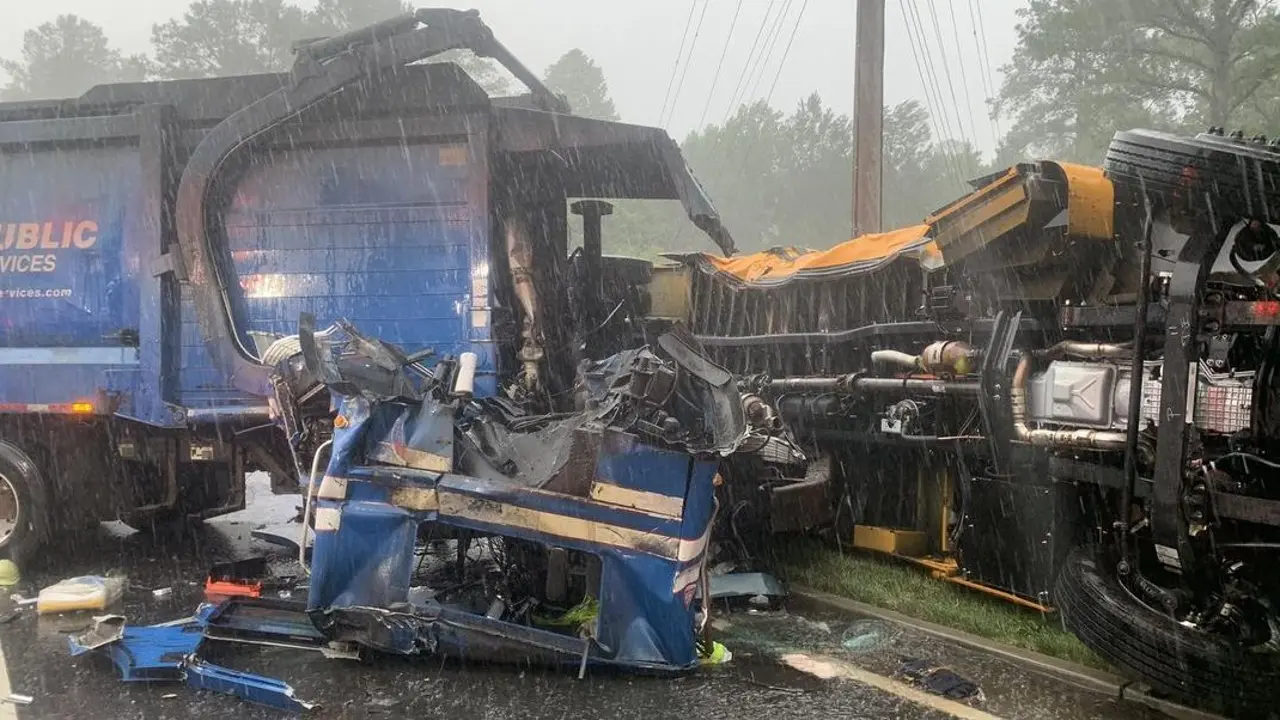Garbage trucks play a crucial role in waste management, but they can also pose significant risks on the road. Garbage truck accidents can result in serious injuries and property damage, highlighting the need for understanding the causes, consequences, and prevention strategies associated with these incidents.
1. Introduction
Garbage trucks, also known as trash trucks or refuse trucks, are essential for collecting and transporting waste. However, their large size and unique operating conditions make them prone to accidents. Understanding the causes of these accidents and implementing preventive measures is crucial for ensuring the safety of both garbage truck drivers and other road users.
Also Read: CAR ACCIDENT ATTORNEY IN JACKSONVILLE, FL
2. Understanding Garbage Truck Accidents
Types of Garbage Truck Accidents
Garbage truck accidents can be broadly categorized into the following types:
- Collisions with other vehicles
- Pedestrian or cyclist accidents
- Rollovers or tip-overs
Common Causes of Garbage Truck Accidents
Several factors contribute to garbage truck accidents, including:
- Driver fatigue or distraction
- Poorly maintained vehicles
- Inadequate training for drivers
- Negligent driving behavior, such as speeding or running red lights
3. Consequences of Garbage Truck Accidents
Impact on Individuals
Garbage truck accidents can result in serious injuries or fatalities for drivers, passengers, pedestrians, and cyclists involved in the collision. These accidents can lead to long-term physical and emotional trauma for the victims and their families.

Impact on Communities
Garbage truck accidents can also have broader consequences for communities, including:
- Traffic congestion and delays
- Damage to public infrastructure
- Environmental hazards from spilled waste
4. Prevention of Garbage Truck Accidents
Safety Measures for Garbage Truck Drivers
To prevent accidents, garbage truck drivers should:
- Follow traffic laws and regulations
- Perform regular vehicle maintenance checks
- Avoid distractions while driving, such as using mobile phones
- Use proper safety equipment, such as seat belts and mirrors
Public Awareness and Education
Public awareness campaigns can help educate drivers and pedestrians about the risks associated with garbage trucks. These campaigns can promote safe driving practices and encourage pedestrians and cyclists to be cautious around garbage trucks.
Read Also: ACCIDENT LAWYER JACKSONVILLE FL: YOUR GUIDE TO LEGAL ASSISTANCE AFTER AN ACCIDENT
5. Conclusion
Garbage truck accidents can have devastating consequences, but they are largely preventable. By understanding the causes of these accidents and implementing safety measures, we can work towards reducing the number of garbage truck accidents and ensuring the safety of all road users.
6. FAQs
- How common are garbage truck accidents?
- Garbage truck accidents are relatively common, with thousands of incidents reported each year in the United States alone.
- What can I do to stay safe around garbage trucks?
- To stay safe around garbage trucks, always maintain a safe distance, especially when they are backing up or making turns.
- Are garbage truck drivers required to undergo special training?
- Yes, garbage truck drivers are required to undergo training to ensure they are familiar with the vehicle’s operation and safety procedures.
- Can poor weather conditions contribute to garbage truck accidents?
- Yes, poor weather conditions, such as rain or snow, can increase the risk of accidents due to reduced visibility and slippery road conditions.
- Are there specific laws governing the operation of garbage trucks?
- Yes, there are specific laws and regulations that govern the operation of garbage trucks, including weight limits and safety requirements.

